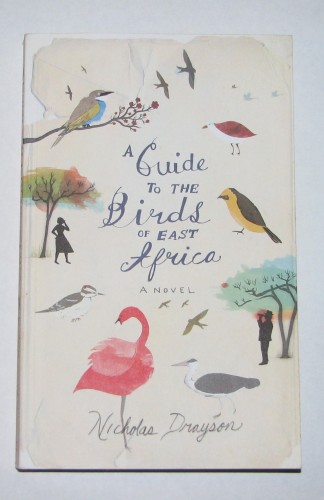I am writing a novel.
I need to clarify that statement: I have been thinking about writing a novel. The time for thinking is over. I urgently need to start some serious planning and writing. The pressure is really on, because I have to present the first chapter – or a part of a chapter – at a seminar next week.
Let me back-track a little. Regular readers of this blog will know that I am half way through my Master of Arts in Creative Writing course. So far I’ve been very successful, completing all the assignments and gaining distinctions (or higher) for every one of them. It was hard work, but the writing has been very satisfying. My skills have developed way beyond what I had hoped for, and I’ve produced many pleasing pieces of writing.
I have one unit of study to complete. It’s called Editing and Publishing for Writers, a very practical course aimed at both editing one’s writing and preparing work for publication. The balance of my studies this year will focus on my thesis paper. This will be a 40,000 word novel.
What should I write about?
This is a question that has plagued writers ever since the first stylus was picked up to scratch on a clay tablet in ancient Sumaria. I wasn’t there at the time, so I’m not sure what they wrote about. In varying degrees of perplexity, many writers have always struggled to come up story ideas.
It makes it so much easier if you know the plot line before you start writing. You know – beginning, middle and ending – that sort of thing. Not to forget twists and turns, problems to overcome, births, deaths, marriages, murders and the inevitable taxes.
It also helps to know your characters. Boy or girl, adults, animals, creatures, monsters or aliens: they’ve all been used before and will presumably be used many times more for many years to come.
Finally, it is essential that you are quite clear in your head where and when the story is set. Will it be in a city or a rural setting? Will it be a place near you or far away, perhaps in another country or even another world? Will the story be set in the present time, the distant past or even the future?
Decisions, decisions, decisions
The writer has to make so many decisions when starting to write a short story or novel. These choices are essential in the planning stages and they need to be reviewed constantly while the work is in progress. That is what I will be doing during the coming months.
I will get by with little help from my readers:
This blog will become a journey through the writing of my novel. I plan to write frequently about the process and the decisions I make. I invite reader’s comments as we go; in fact, you can all help me in the process. I will need all the help I can get.
